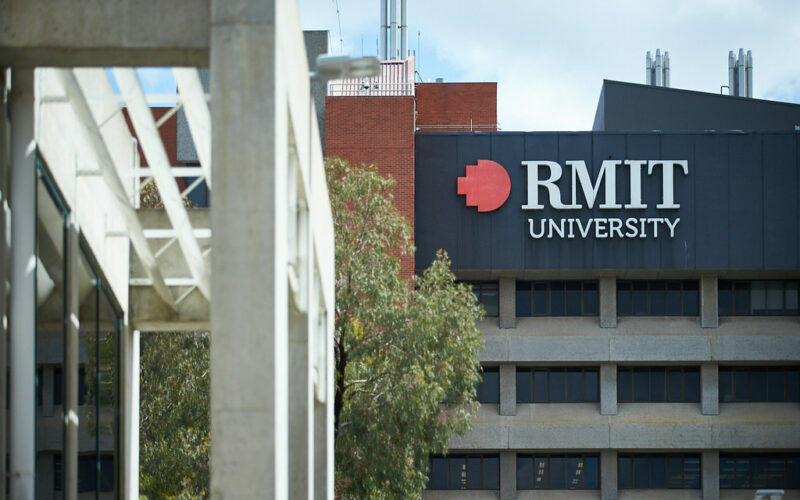Ziggy Switkowski: the corporatisation of Australian universities and Crown Casino
September 13, 2021
After a stellar career at the pinnacle of several large corporate entities, Ziggy Switkowski seems to have fallen to Earth after resigning as chancellor of RMIT university.
This follows a petition presented by staff members outraged that their chancellor would also be chairman of Crown Casino. But is this the beginning of university staff campaigning more broadly against the corporatisation of the Australian higher education system?
Two prominent figures have now recently been replaced as chancellors of their respective universities under pressure from university staff and students, Mark Vaile at the University of Newcastle before he even took up his position and now Switkowski at RMIT, where he had been chancellor for more than 10 years, and had just been renewed for another five. His resignation is hardly coincidental, with the presentation by RMIT staff of a petition asserting the incompatibility of someone holding the position of chancellor of a university whilst heading a major Australian gambling company. He says he resigned because he was too overworked in other positions.
A letter from Megaphone (and the NTEU) has congratulated the RMIT staff for taking this action. It deprecates having someone who is chairman of Crown also being chancellor of a university, because The H_igher Education Act (2005)_ requires by law that University Council members have ‘an appreciation of the values of a University’. Given RMIT values include being ‘agents of positive change for our students, the community and beyond’, it is simply untenable that you continue in your role of RMIT chancellor or as a Council member whilst chair of Crown Resorts Board.
Elizabeth Knight in The Age quoted Dr Melissa Slee as saying: The chair of a casino is simply incompatible with (being) chancellor of a university … In fact, its quite disgusting. Universities are not corporations, and they are certainly not casinos.
It is surely significant that the resignation of Switkowski, following pressure from staff members, was reported in the The Age and Sydney Morning Herald, The Australian Financial Review, the Herald Sun and The Australian. Normally the resignation of a university chancellor would not receive such attention. Yet in this case it is likely because of the conjunction of circumstances that produced the situation, especially that Switkowski has long been a very high profile businessman, chief executive officer of Telstra and Optus at different times, and chairman of the NBN.
Crown Casino has been under justified scrutiny by a number of inquiries over the past eighteen months and has been portrayed in an extremely negative light. Moreover, even without the problems the various commissions have exposed, the many problems associated with mass forms of gambling, mainly poker machines, have been publicized for years, yet have largely been ignored by the gambling regulator because it is a toothless tiger.
The position of chancellor, as chair of the university council, has traditionally been almost an honorary one, but has changed somewhat since universities have become corporatised. The top levels of university administration, with the tacit assistance of the university council, have come to stand against the academic and general staff who are the front line of the university in respect of teaching and research.
The council was also traditionally supposed to represent a kind of link between the university and the wider community. Though this is surely much better achieved by the students who attend the university communicating their experience of university life to those around them who are outside of the university.
In any case, a chancellor is usually somebody with a pre-existing public profile, usually an ex-politician, a businessman, a diplomat, and very occasionally a former academic. Presumably the assumption by the vice-chancellor of the university and the other senior administrative staff is that such figures will be able to assist the university in lobbying for more funds, outside of the normal avenues for obtaining such.
Their positions have arguably become more important as the university system has become more corporatized and funding sources, especially from the government, have diminished over the past three decades, at the same time as university administrations have taken an increasingly large portion of the university budget.
Academic staff opposition to the increasing corporatization of the system has in my experience been muted. I remember warning people about this at my own university in the early nineties when the vice-chancellors position became more presidential. This was accompanied by the first of many organisational restructures and strategic plans. None of these really improved the efficiency of the chief functions of the university, teaching and research. Rather they made employment of academic staff more precarious, massively increasing the number of sessional employees.
Vaile was prevented from becoming chancellor at the University of Newcastle because of his chairmanship of Whitehaven Coal. Switkowski resigned from RMIT following an outcry over his connection with Crown Casino. Does the pressure placed on both men represent a new radicalism of academic staff and a recognition of the damage the corporate mentality has done to the Australian higher education system? This remains to be seen. But that the staff were able to mobilize themselves shows a renewed attempt by university staff to take back some control of institutions that have been so damaged by corporatism and the constant restructuring accompanying this.
In the final analysis, the pressured removals, driven by academic staff, of Switkowski and Vaile are certainly desirable in reasserting the values that should drive a university education. But whether they will stop the corporatisation process which has been so damaging for Australians universities is a moot point. This will be a much greater battle requiring a very clear understanding of what the underlying value of both a university education and a university should be. It will require academic staff to be pitted against certain of the administrative staff and some senior academics in a way that will not be pleasant, even if it is entirely necessary.

